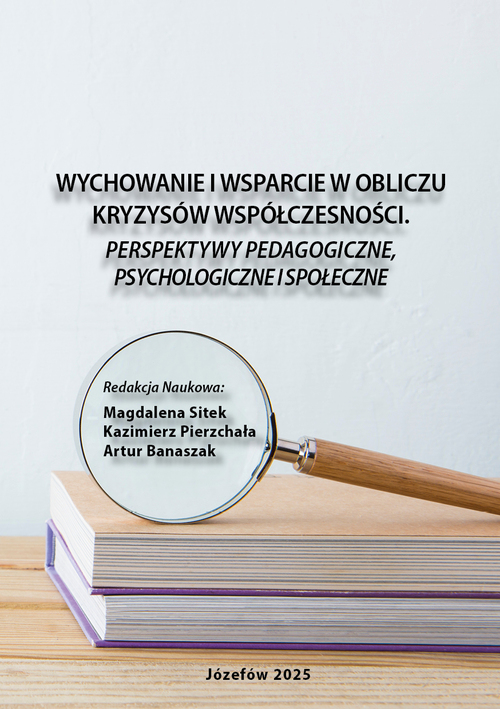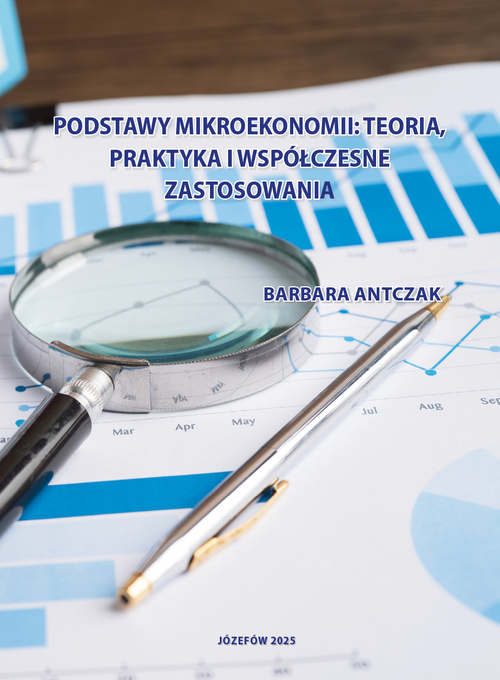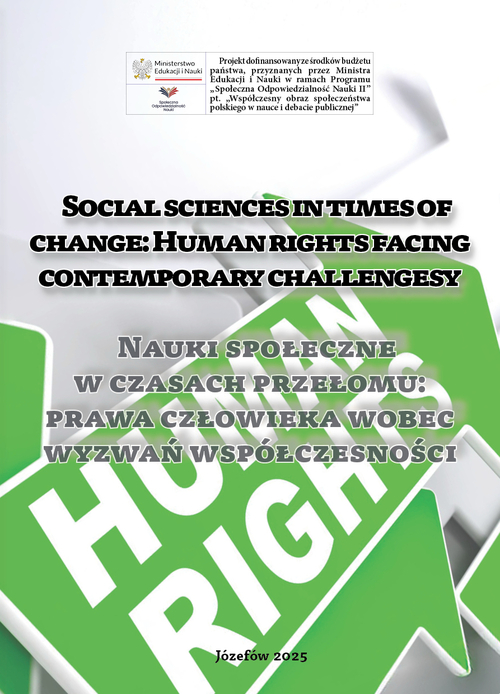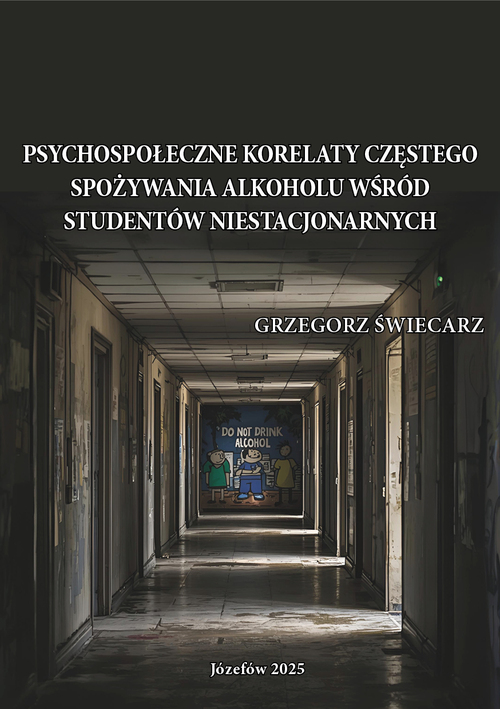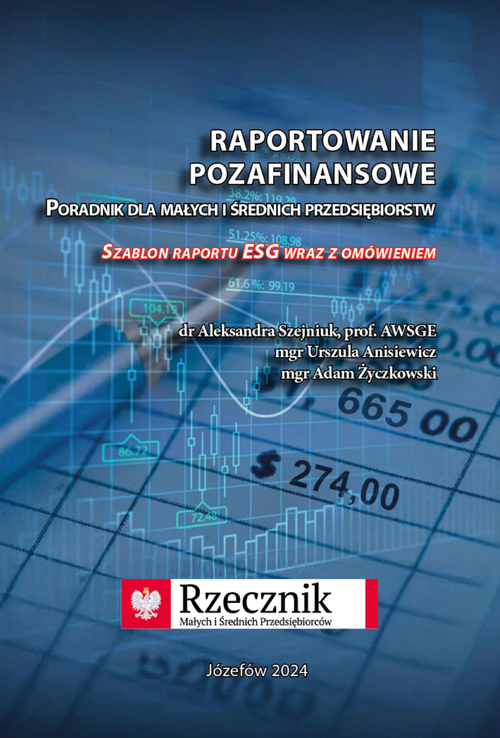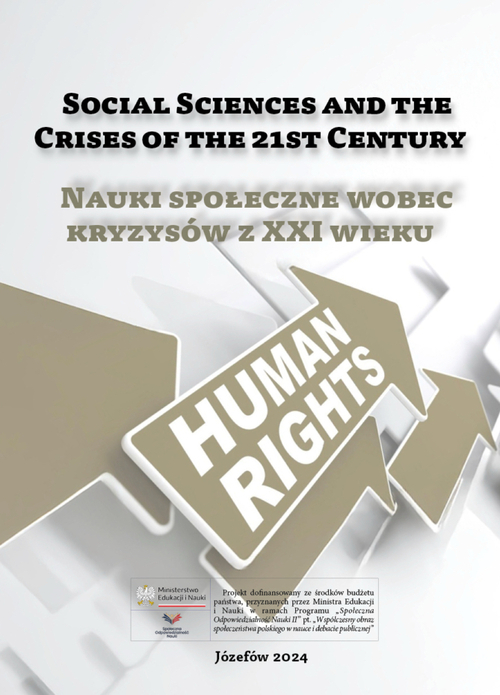Wydawnictwo
AWSGE
AWSGE

Akademia Nauk Stosowanych
WSGE
im. Alcide De Gasperi
WSGE
im. Alcide De Gasperi
Ethical code
Ethical Code for Autors:
1. Submission of manuscript is equivalent to the statement that the author is entitled to copyright to the manuscript, that the manuscript is free of legal defects.
2. Authors must certify that submitted work is original and has not been published elsewhere in any language. Work should not be submitted concurrently to more than one publication.
3. Submission is equivalent to permission for publication and dissemination of the manuscript (unlimited as to time and territory of distribution as well as to free copies and issues made available on the Internet).
4. The contributor shall be responsible for securing any copyright waivers and permissions as may be needed to allow (re)publication of material in the manuscript (text, illustrations, etc.) that is the intellectual property of third parties.
5. All Authors must have significantly contributed to the research. To preventguest, gift, andghostauthorship researchers should ensure that only those individuals who meet authorship criteria (i.e. made a substantial contribution to the work) are rewarded with authorship and that deserving authors are not omitted.
6. Responsibility for the correct attribution of authorship lies with authors themselves
7. The corresponding author should act as a point of contact between the editor and the other authors and should keep co-authors informed and involve them in major decisions about the publication (e.g. responding to reviewers’ comments).
8. Authors should take collective responsibility for their work and for the content of their publications. Researchers should check their publications carefully at all stages to ensure methods and findings are reported accurately. Authors should carefully check calculations, data presentations, typescripts/submissions and proofs.
9. Researchers should strive to describe their methods clearly and unambiguously so that their findings can be confirmed by others.
10. Authors should represent the work of others accurately in citations and quotations.
11. Authors should not copy references from other publications if they have not read the cited work.
12. Relevant previous work and publications, both by other researchers and the authors’ own. The primary literature should be cited where possible.
13. Authors should supply evidence that reported research received the appropriate approval and was carried out ethically (e.g. copies of approvals, licences, participant consent forms).
14. Researchers should not generally publish or share identifiable individual data collected in the course of research without specific consent from the individual (or their representative).
15. Authors should cooperate with editors in issuing corrections or retractions when required.
16. All sources of research funding, including direct and indirect financial support, supply of equipment or materials, and other support (such as specialist statistical or writing assistance) should be disclosed.
17. The results of scientific research conducted by the author should not be reused in the same scope in other scientific texts. However, it is possible to use various research issues and problems coming from the same studies.
References:
Wager E., Kleinert S. Responsible research publication: international standards for authors A position statement developed at the 2nd World Conference on Research Integrity, Singapore, July 22-24, 2010 /COPE. 2011. 6 p. Available at: http://publicationethics.org/files/International%20standards_authors_for%20website_11_Nov_2011.pdf
1. Submission of manuscript is equivalent to the statement that the author is entitled to copyright to the manuscript, that the manuscript is free of legal defects.
2. Authors must certify that submitted work is original and has not been published elsewhere in any language. Work should not be submitted concurrently to more than one publication.
3. Submission is equivalent to permission for publication and dissemination of the manuscript (unlimited as to time and territory of distribution as well as to free copies and issues made available on the Internet).
4. The contributor shall be responsible for securing any copyright waivers and permissions as may be needed to allow (re)publication of material in the manuscript (text, illustrations, etc.) that is the intellectual property of third parties.
5. All Authors must have significantly contributed to the research. To preventguest, gift, andghostauthorship researchers should ensure that only those individuals who meet authorship criteria (i.e. made a substantial contribution to the work) are rewarded with authorship and that deserving authors are not omitted.
6. Responsibility for the correct attribution of authorship lies with authors themselves
7. The corresponding author should act as a point of contact between the editor and the other authors and should keep co-authors informed and involve them in major decisions about the publication (e.g. responding to reviewers’ comments).
8. Authors should take collective responsibility for their work and for the content of their publications. Researchers should check their publications carefully at all stages to ensure methods and findings are reported accurately. Authors should carefully check calculations, data presentations, typescripts/submissions and proofs.
9. Researchers should strive to describe their methods clearly and unambiguously so that their findings can be confirmed by others.
10. Authors should represent the work of others accurately in citations and quotations.
11. Authors should not copy references from other publications if they have not read the cited work.
12. Relevant previous work and publications, both by other researchers and the authors’ own. The primary literature should be cited where possible.
13. Authors should supply evidence that reported research received the appropriate approval and was carried out ethically (e.g. copies of approvals, licences, participant consent forms).
14. Researchers should not generally publish or share identifiable individual data collected in the course of research without specific consent from the individual (or their representative).
15. Authors should cooperate with editors in issuing corrections or retractions when required.
16. All sources of research funding, including direct and indirect financial support, supply of equipment or materials, and other support (such as specialist statistical or writing assistance) should be disclosed.
17. The results of scientific research conducted by the author should not be reused in the same scope in other scientific texts. However, it is possible to use various research issues and problems coming from the same studies.
References:
Wager E., Kleinert S. Responsible research publication: international standards for authors A position statement developed at the 2nd World Conference on Research Integrity, Singapore, July 22-24, 2010 /COPE. 2011. 6 p. Available at: http://publicationethics.org/files/International%20standards_authors_for%20website_11_Nov_2011.pdf
We process personal data collected when visiting the website. The function of obtaining information about users and their behavior is carried out by voluntarily entered information in forms and saving cookies in end devices. Data, including cookies, are used to provide services, improve the user experience and to analyze the traffic in accordance with the Privacy policy. Data are also collected and processed by Google Analytics tool (more).
You can change cookies settings in your browser. Restricted use of cookies in the browser configuration may affect some functionalities of the website.
You can change cookies settings in your browser. Restricted use of cookies in the browser configuration may affect some functionalities of the website.

